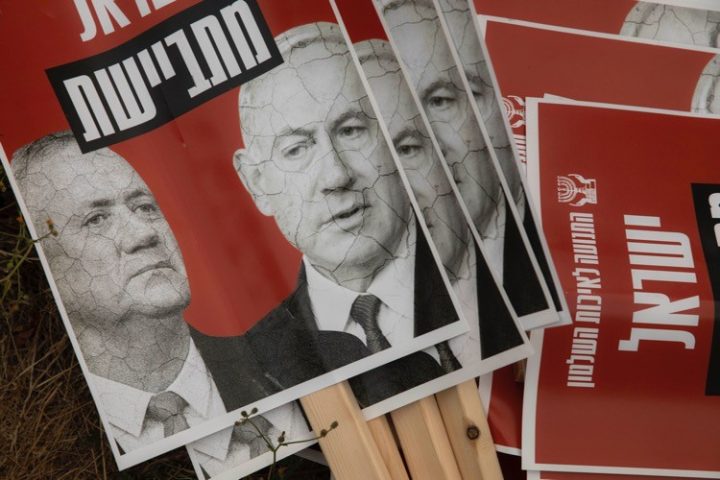
The State of Israel is now looking forward to an unprecedented fourth general election in the space of two years after a bill that would have avoided the dissolution of Israel’s legislative body, the Knesset, failed to pass on Monday night. The legislation would have avoided a December 23 national budget deadline by extending the deadline to January 5.
The bill failed by a 49-47 vote, with four members of the Blue and White/Likud Party ruling coalition voting against keeping the current Knesset operating. The failure of the bill assures a new general election in Israel on March 23 of next year. It also signals the end of the “Unity” government formed under the leadership of the Likud Party’s Benjamin Netanyahu and the Blue and White Party’s Benny Gantz.
After the bill failed, one member of the Knesset (MK) announced that she was leaving the Likud Party to join the New Hope Party formed by another former Likud member, Gideon Sa’ar, earlier this month. MK Michal Shir announced her defection shorty after the vote on Twitter.
“I am at peace with my decision to do the least I can to end this embarrassing show of a stuck and conflicted government which is holding an entire country hostage for political seats, and therefore I will resign from the Knesset and join ‘New Hope’ led by Gideon Sa’ar,” Shir wrote.
At least one more member of Likud, MK Sharren Haskel, is also reportedly set to join New Hope and leave Netanyahu’s party. Haskel was not present and did not vote on Monday night.
Meanwhile, the Blue and White Party, which formed the unity government with Netanyahu, is on the brink of collapse. Blue and White MK Michal Cotler-Wunsh said that she wouldn’t guarantee running for the party in the upcoming election.
“I supported entering the unity government out of responsibility to the State of Israel,” Cotler-Wunsh tweeted. “That same responsibility requires me now to consider the bad option of elections and compare it to the intolerable reality of a government that does not function and violates the rules of the game, including misusing Basic Laws. The time has come to return to the people, who are sovereign in a democracy, and ask them to make a decision.”
Netanyahu blamed the failure of the government on the Blue and White Party for reneging on certain promises made due to the coronavirus pandemic. “Blue and White withdrew from the agreements and dragged us to unnecessary choices during the corona crisis. We do not want elections and we voted against them tonight as well, but we are not afraid of elections — because we will win,” Netanyahu tweeted.
Gantz shot back that Netanyahu is distracted from governing by his legal troubles. Netanyahu has been charged with bribery, fraud, and breach of trust. Netanyahu denies the charges and has said that they are more of a political issue than a legal one.
“I regret that the prime minister is preoccupied with his trial and not the public interest, and is prepared to drag the entire country into a period of uncertainty, instead of ensuring economic stability and a rehabilitation of the economy,” Gantz quipped.
“If Likud won’t meet our demands, we will head to elections with our head held high, having put Israel before everything else, and let the voters decide,” Gantz said.
Gantz’s Blue and White Party is collapsing in current polls largely over its decision to form a government with Netanyahu last April after it had pledged not to. Its two top leaders, Gantz and current Minister of Foreign Affairs Gabi Ashkenazi, are said to be considering walking away from politics and not running for the Knesset in the upcoming election.
According to a very early poll, Netanyahu’s Likud Party is likely to garner the most Knesset seats in the upcoming election but is still short of a governing majority. A poll conducted by Israel’s Channel 12 has the Likud Party winning 29 seats with its closest allies the UTJ, Yamina, and Shas only garnering 29 seats between them, leaving the coalition three short of the 61 seats needed for a governing majority.
Likud’s closest competitor, the newly formed New Hope Party, is at 18 seats in the poll. The Blue and White Party, which came so close to defeating Likud earlier this year, would only take five seats according to the poll.
Further muddying the electoral waters in Israel is an expected coronavirus lock-down as Israel, the West Bank, and Gaza are all experiencing a new surge of COVID-19 cases. Health minister Yuli Edelstein reports that a lock-down decision will be made by Wednesday.




